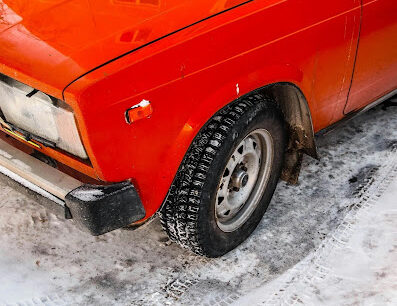Driving under the influence (DUI) of alcohol or drugs is a serious offense in Colorado, carrying significant legal consequences. Understanding Colorado’s DUI laws is essential for all drivers to navigate the legal landscape effectively and avoid potential pitfalls. This article provides a comprehensive overview of Colorado’s DUI laws, including key definitions, penalties, and important considerations for drivers.
Legal Definition of DUI in Colorado
In Colorado, DUI is defined as driving a vehicle while impaired by alcohol, drugs, or both to a degree that it affects the driver’s ability to operate the vehicle safely. The state uses two primary measures to determine impairment:
- Blood Alcohol Content (BAC): A driver is considered legally impaired if their BAC is 0.08% or higher. For commercial drivers, the limit is 0.04%, and for drivers under 21 years old, the limit is 0.02%.
- Drug Impairment: Colorado law also covers impairment by drugs, including prescription medications, over-the-counter drugs, and recreational or medical marijuana. Any amount of drug impairment that affects driving ability can lead to a DUI charge.
Types of DUI Offenses
Colorado recognizes several types of DUI offenses, each with varying degrees of severity:
- DUI (Driving Under the Influence): This is the most serious offense, applicable when a driver’s BAC is 0.08% or higher, or when drug impairment is evident.
- DWAI (Driving While Ability Impaired): This offense applies when a driver’s BAC is between 0.05% and 0.079% or when the driver’s ability to operate a vehicle is impaired to the slightest degree by alcohol or drugs.
- Underage DUI: For drivers under 21, any BAC between 0.02% and 0.05% can result in an underage DUI charge.
- DUID (Driving Under the Influence of Drugs): This offense pertains specifically to impairment due to drugs, including marijuana, prescription medications, and illegal substances.
Penalties for DUI in Colorado
The penalties for DUI in Colorado vary based on the severity of the offense, the driver’s history, and other factors. Here are the typical consequences:
- First Offense:
- DUI: Penalties include 5 days to 1 year in jail, fines ranging from $600 to $1,000, 48 to 96 hours of community service, and a 9-month license suspension.
- DWAI: Penalties include 2 to 180 days in jail, fines ranging from $200 to $500, 24 to 48 hours of community service, and 8 points on the driver’s license.
- Second Offense:
- DUI: Penalties include 10 days to 1 year in jail, fines ranging from $600 to $1,500, 48 to 120 hours of community service, and a 1-year license suspension. The driver must also install an ignition interlock device for 2 years.
- DWAI: Penalties include 10 days to 1 year in jail, fines ranging from $600 to $1,500, 48 to 120 hours of community service, and 8 points on the driver’s license.
- Third Offense:
- DUI/DWAI: Penalties include 60 days to 1 year in jail, fines ranging from $600 to $1,500, 48 to 120 hours of community service, and a 2-year license suspension. An ignition interlock device is required for 2 years after license reinstatement.
- Fourth and Subsequent Offenses:
- DUI/DWAI: Classified as a Class 4 felony, penalties include 2 to 6 years in prison, fines ranging from $2,000 to $500,000, 3 years of parole, and a 3-year license suspension.
Additional Consequences
Beyond the immediate legal penalties, a DUI conviction can have long-lasting consequences:
- Increased Insurance Premiums: A DUI conviction typically results in significantly higher car insurance premiums.
- Employment Impact: Certain professions may impose disciplinary actions or termination upon a DUI conviction.
- Travel Restrictions: Some countries may restrict entry to individuals with DUI convictions.
- Educational Consequences: College students may face disciplinary actions, including suspension or expulsion, and may lose scholarships.
Colorado’s Express Consent Law
Colorado has an “Express Consent” law, meaning that by operating a motor vehicle in the state, drivers automatically consent to chemical testing (breath, blood, or urine) if suspected of DUI. Refusing a chemical test results in immediate consequences:
- First Refusal: 1-year license suspension and mandatory ignition interlock device for 2 years.
- Second Refusal: 2-year license suspension and mandatory ignition interlock device for 2 years.
- Third Refusal: 3-year license suspension and mandatory ignition interlock device for 2 years.
Sobriety Checkpoints
Sobriety checkpoints are legal in Colorado and are used by law enforcement to identify and deter impaired drivers. At these checkpoints, officers may stop vehicles to check for signs of impairment. Drivers are required to stop and comply with the officers’ requests, including providing a driver’s license and proof of insurance.
DUI and Marijuana
Colorado’s legalization of recreational marijuana has introduced additional complexities to DUI enforcement. The legal limit for THC (the psychoactive component of marijuana) in a driver’s bloodstream is 5 nanograms per milliliter. However, impairment can be subjective, and officers rely on observations and field sobriety tests to determine impairment.
Defending Against DUI Charges
Defending against DUI charges in Colorado involves several potential strategies:
- Challenging the Stop: Arguing that the traffic stop lacked reasonable suspicion or probable cause.
- Questioning Test Accuracy: Contesting the accuracy and reliability of chemical tests.
- Field Sobriety Test Validity: Disputing the administration and interpretation of field sobriety tests.
- Medical Conditions: Presenting evidence of medical conditions that may have affected test results or behavior.
Understanding Colorado’s DUI laws is crucial for all drivers to avoid severe legal consequences and ensure road safety. The penalties for DUI offenses are stringent and can have far-reaching effects on an individual’s personal and professional life. By being informed and making responsible choices, drivers can help keep Colorado’s roads safe for everyone.
If you find yourself facing DUI charges, seeking legal assistance from an experienced Denver criminal attorney is essential. A skilled lawyer can help navigate the complexities of DUI law, develop a strong defense strategy, and work toward the best possible outcome for your case.


![Berniston Review: Getting Started With Berniston [berniston.com]](https://speedwaymedia.com/wp-content/uploads/2024/07/Getting-Started-With-Berniston.png)




